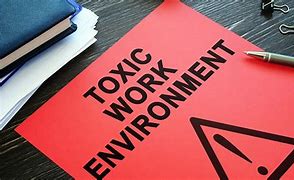As an insurance recruiter, I hear the phrase “toxic environment” at least 2-3 times/day! The phrase has been popularized on social media and it is now being used as a “catch all” reason for job changes by many candidates. It is essential for you as the interviewer to delve deeper so you can determine whether the person will fit with your team and company culture. Your goal is to decide if the candidate really worked in a problematic company culture or was just personally unhappy as a result of internal personality or organizational conflicts with their direct boss, coworkers, or company leadership.
Here’s 4 tips on how you can navigate this answer in your interviews:
1. Your perception of the phrase matters:
When a candidate uses the phrase “toxic environment,” your own perception of the phase can immediately color your opinion of the candidate. It can conger up negative images and it can also raise concerns on multiple levels. It is crucial to pause and understand the context surrounding why the applicant used the phrase since it can be loosely interpreted and may vary greatly between individuals.
2. Show empathy and understanding:
You want to show empathy and question for deeper understanding. Acknowledging that a candidate has experienced a challenging work environment is the first step. This will demonstrate to your potential employee that you value open communication and care about your employees. It will create an environment allowing for additional dialogue and cause the candidate to feel heard and valued.
3. Use this as an opportunity to learn how the candidate navigates internal conflicts:
Keep in mind that the candidate may still be quite emotional and raw from the incident. Acknowledge the difficult situation and ask the candidate to isolate on a couple of specific issues and explain how they tried to resolve things. Listen carefully to how they frame the issues. Are they balanced? Do they thoughtfully tell you about both sides of the situation and the steps they went through to try to fix things, or do they just paint themselves as the victim and blame others? This will give you insights into their decision making and problem-solving skills and allows you a chance to decide if the overall culture was truly terrible or if this was just an isolated incident or personality conflict that they chose to call “toxic”.
4. This is your opportunity to highlight your organization’s culture and values:
After you have a more in-depth understanding of why the candidate chose to use the words “toxic environment”, you can pivot the conversation to showcase your company’s core values and commitment to fostering a positive workplace culture. You can provide examples of initiatives or policies you have in place to enhance work-life balance, employee recognition, and professional development. Emphasize that you genuinely care about creating a productive and supportive work atmosphere.
Navigating the toxic environment answer is tricky, but with patience and empathy, you can get the applicant to open up more so that you can decide if they will be a good long-term employee for you or someone that will bring personal problems to your organization.
Insurance Resourcing is dedicated to partnering with you and can help you understand the backstory for candidate job changes. If you need to hire a new team member, Contact me and let’s find your next star employee!


